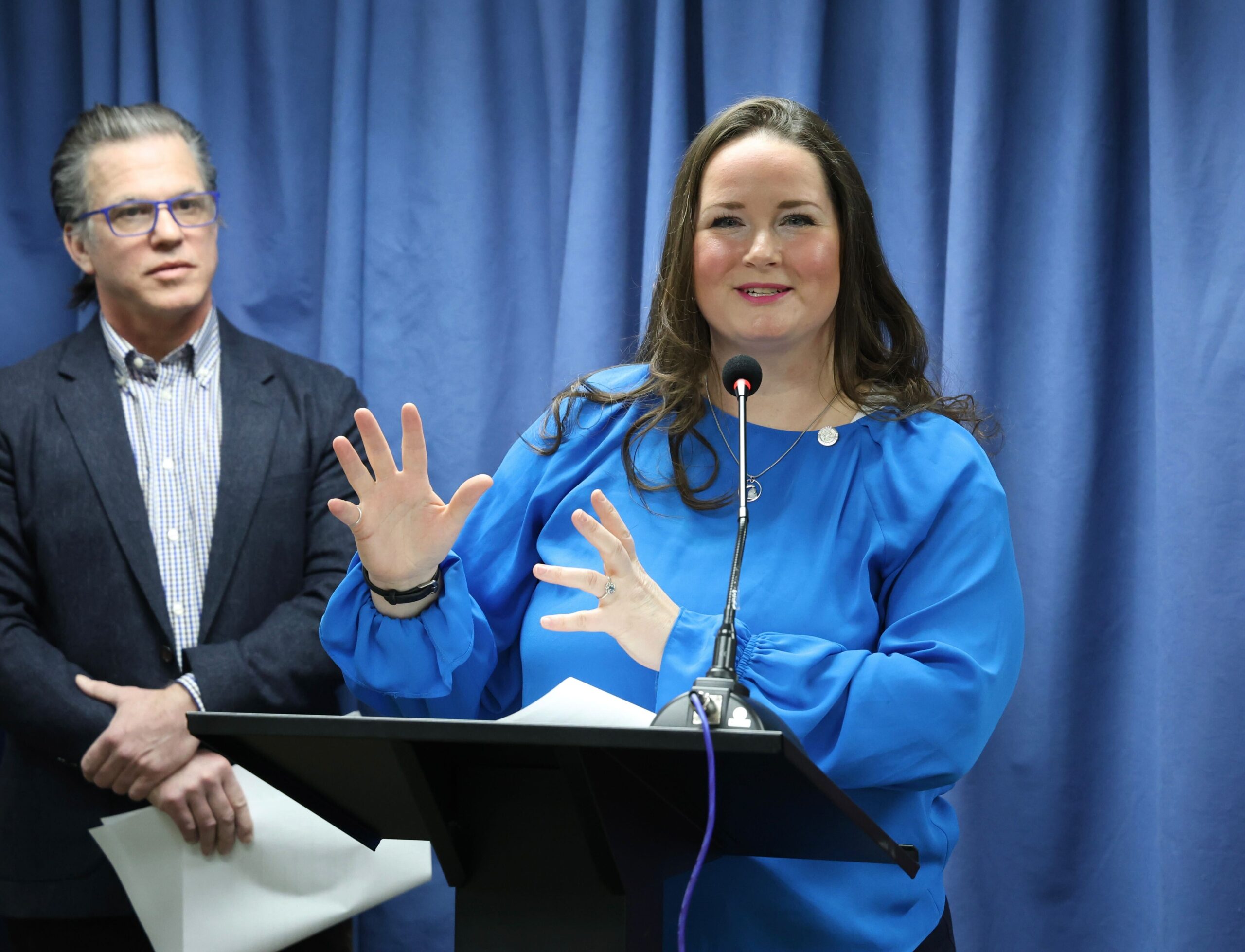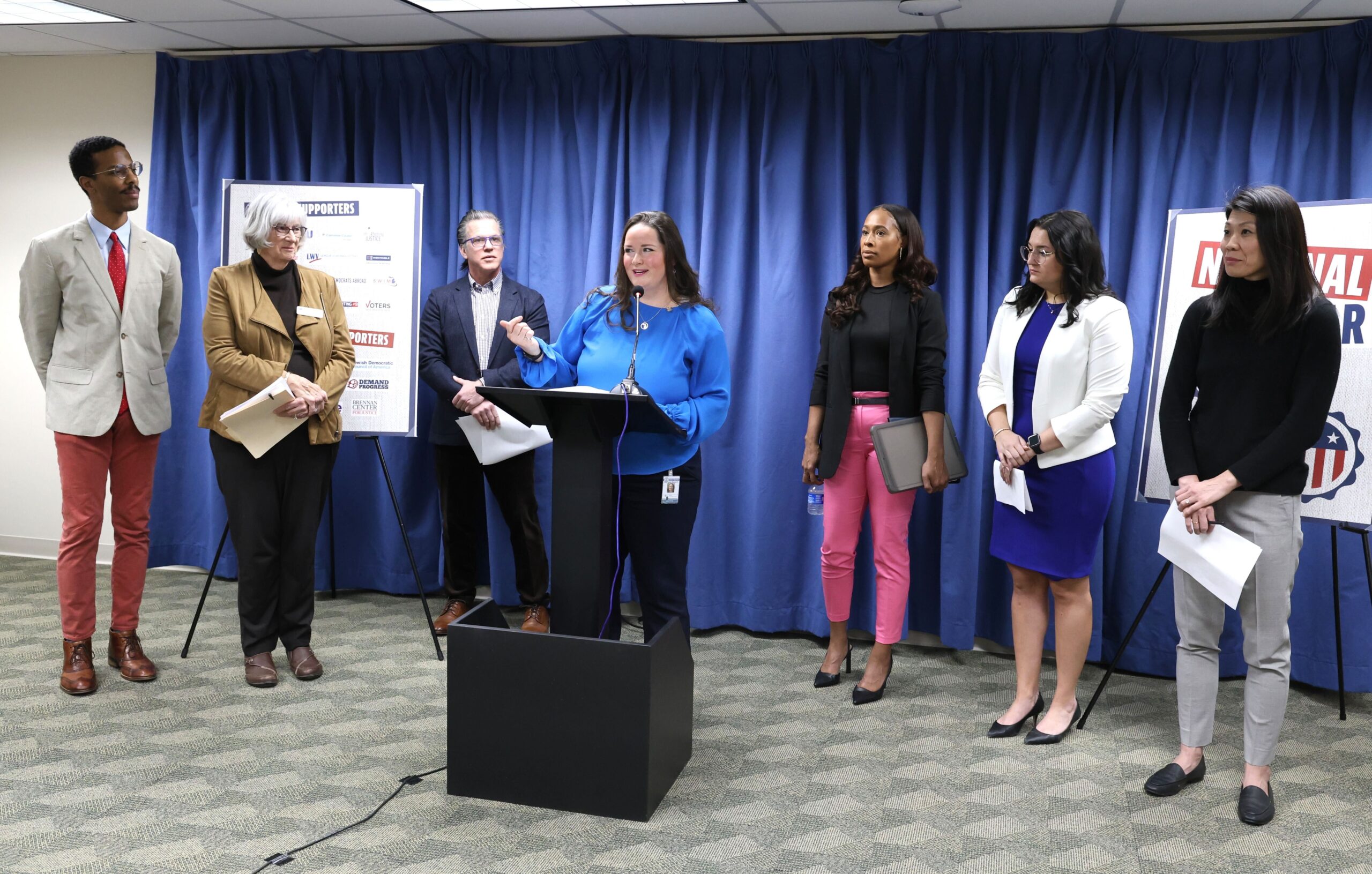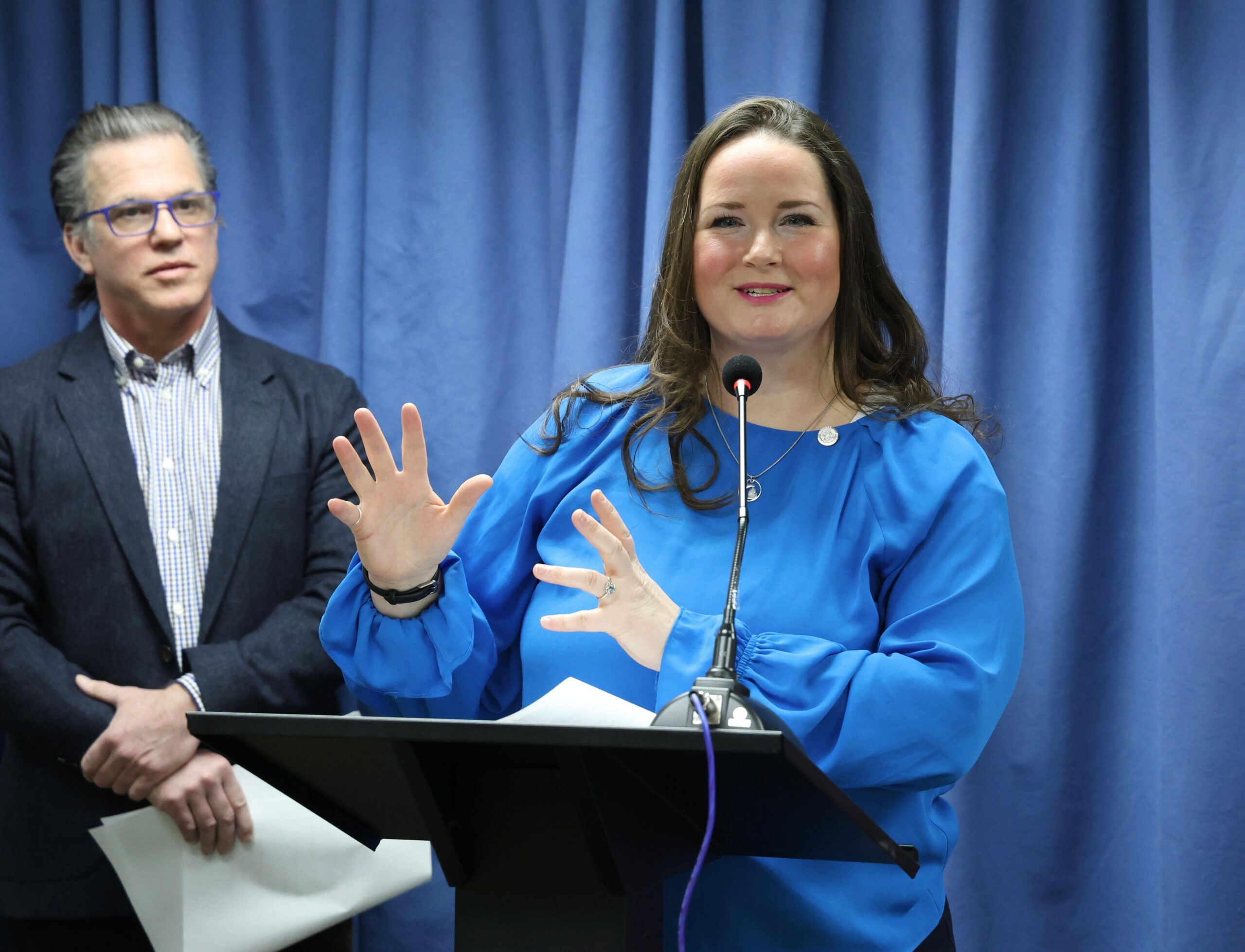

State Rep. Carrie Rheingans (D-Ann Arbor) addresses reporters at a press conference introducing National Popular Vote bills at the Anderson House Office Building on March 1, 2023.
LANSING, Mich. March 1, 2023 – The presidential candidate who gets the most votes nationwide would become president under National Popular Vote bills introduced Wednesday in the Michigan House and Senate.
“I was elected to the Michigan House because I won the most votes — and the same should be true for how we elect our country’s president,” said state Rep. Carrie Rheingans (D-Ann Arbor), who is sponsoring the bill in the House. “Fairness and living in a democracy means every voice is heard, and every vote is equal. The National Popular Vote bill ensures that every voter, in every state, will have an equal vote in every presidential election.”
Under the current system, five of the nation’s 46 presidents won the election without winning the most popular votes in all 50 states and the District of Columbia. The presidential candidate who lost the national popular vote went on to become president in two of the last six elections — and this almost happened again twice more in 2004 and 2020.
“Presidential candidates should be focusing on Michigan and all 50 states,” said state Sen. Stephanie Chang (D-Detroit), who is sponsoring the bill in the Senate. “The presidential candidate who gets the most votes nationwide should be president — period. Adding Michigan to the growing list of states supporting National Popular Vote brings fairness to the system and helps safeguard our democracy.”
A broad coalition joined the legislators in support of enacting National Popular Vote.
“For more than 100 years, the League of Women Voters of Michigan has worked to ensure every person has the desire, right, knowledge and confidence to participate in our democracy,” said Judy Karandjeff, chair of the League of Women Voters of Michigan Advocacy Committee. “The League of Women Voters has long held the position that direct election of the president by popular vote is essential to representative government. Enacting National Popular Vote will apply the concept of ‘one person, one vote’ to our presidential elections, making every voter politically relevant in presidential elections. We strongly support this legislation.”
Fifteen states and the District of Columbia have passed the National Popular Vote law, representing 195 of the 270 electoral votes needed to make the National Popular Vote take effect. Michigan has 15 electoral votes to add toward the 270 mark.
“Our organization works each and every day to ensure state government works for everyone because democracy is how a free society resolves its differences,” said Quentin Turner, program director for Common Cause Michigan. “To do that well, we must all agree the process is fair, produces equitable outcomes, and reflects our communities, our values and our priorities. That’s why we support the National Popular Vote bill here in Michigan.”
Several groups said their advocacy around policies is shaped by how the U.S. democracy functions, a core component of that being the way voters elect presidents.
“For far too long, voters in many communities have felt unsupported and treated like their issues are politically irrelevant and insignificant,” said Courtney Blake Sims, political organizer for Mothering Justice. “Democracy means that every voice and every vote in every community is valued. The National Popular Vote will ensure that people, not agendas, elect our president.”
National Popular Vote does not require an amendment to Michigan’s Constitution or the U.S. Constitution.
“The U.S. Constitution gives each state legislature the exclusive power to decide how its electoral votes are awarded,” said Gabrielle Dresner, policy strategist for the American Civil Liberties Union of Michigan. “This legislation would allow Michigan to join 15 other states and the District of Columbia in awarding those electoral votes to the presidential candidate who gets the most votes nationwide. It’s a simple and fair way to go about electing our president.”
“National Popular Vote doesn’t favor any political party, which is why — as a nonpartisan advocacy organization working to strengthen our democracy — we support this bill,” said Nancy Wang, executive director of Voters Not Politicians. “Voters in the last election sent a clear message rejecting any undermining of our elections and the weakening of our democracy. Enacting National Popular Vote is the logical next step for those who want to protect our democracy and ensure that the candidate with the most votes is elected president.”

